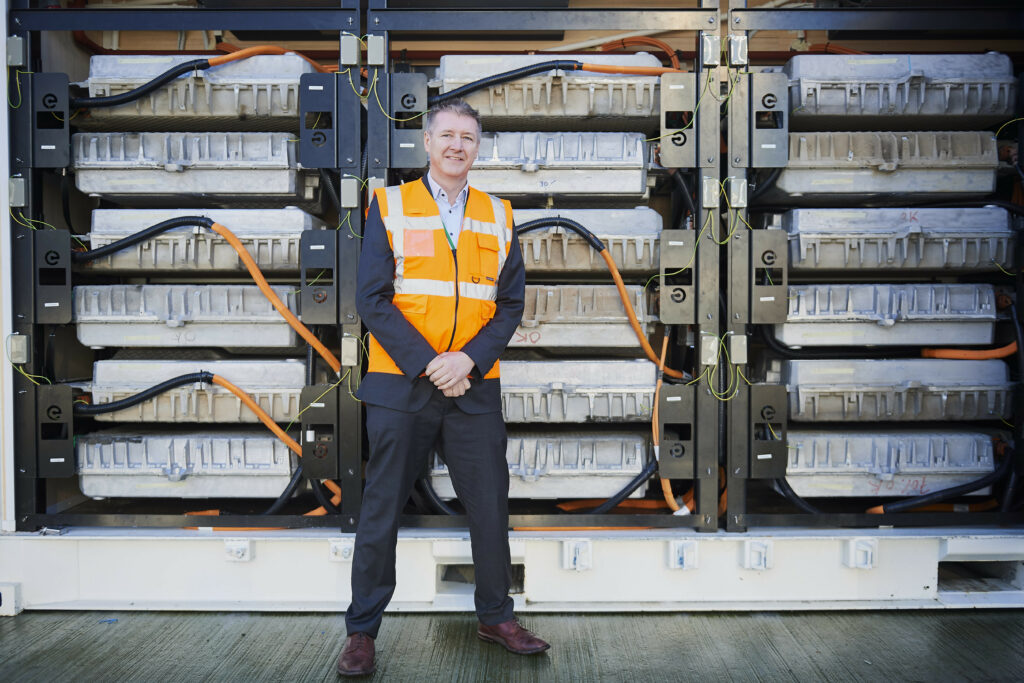Connected Energy has received £15 million from five new major investors, with the company now to scale up its technology and operations.
Financing has been secured from Caterpillar Venture Capital Inc., the Hinduja Group, Mercuria, OurCrowd and Volvo Energy. They join existing investors Engie New Ventures, Macquarie and the Low Carbon Innovation Fund.
It will be used to enable Connected Energy to scale-up in response to the growing energy storage market and increasing international availability of second life batteries.
Connected Energy is expecting this ramp-up of second life battery availability to come in 2024/25, stating that with an estimated 6.7 million pure electric vehicles (EVs) operational worldwide and 34.7 million predicted globally by 2030, the potential for battery reuse is “vast”.
Indeed, Connected Energy CEO Matthew Lumsden, said that when EV batteries are around 25% degraded they are often considered unsuited to life in a vehicle, however they still have sufficient capacity for up to ten years’ more use in a battery energy storage system.
The new funding will also facilitate the in-house development of the company’s first large scale M-STOR system – one of two Connected Kerb units, the other being E-STOR – which is planned to be around 20MW/40MWh.
The company already has sixteen operational systems across Europe in Belgium, Germany, the Netherlands and the UK. The largest of these is at Cranfield University in Bedfordshire, England.
This system allows the site to balance its energy behind the grid, accommodate a newly enlarged solar farm and an air source heat pump on the district heating network to reduce reliance on the gas-combined heat and power system.
At other sites, meanwhile, Connected Energy’s units are helping to balance energy supply where EV chargers are used on either side of a motorway.
Other Connected Energy UK sites include two in Suffolk, both of which are 300kW/360kWh E-STOR storage systems, one of which is at a flagship heritage facility on the University of Suffolk’s Ipswich Campus and one of which is at the Mildenhall Hub.
Connected Energy said it has already booked more projects in the first three months of 2022 than in any previous year, with this largely due to rising fuel prices, which it said have caused many organisations to consider the use of energy storage to reduce costs, increase self-consumption and generate new revenue as well as solve problems such as supply constraints.
Lumsden said: “Our group of investors now span battery supply through to project deployment and monetisation, and critically this will enable us to plan and manage technology and project development to maximise the volume of batteries that are redeployed in second life applications.”





